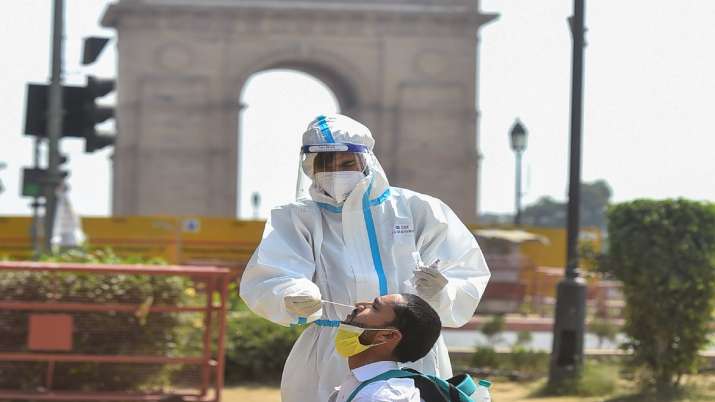Taking umbrage against the B.1.617 mutant of the novel coronavirus being termed an “Indian Variant”, the Union Health Ministry on Wednesday said the WHO has not used the word “Indian” for this strain in its document.
“Several media reports have covered the news of World Health Organisation (WHO) classifying B.1.617 as variant of global concern. Some of these reports have termed the B.1.617 variant of the coronavirus as an Indian Variant,” the ministry said in a statement.
“These media reports are without any basis, and unfounded,” it said.
The ministry dismissed as “without any basis and unfounded” media reports that have used the term “Indian variant” for the B.1.617 mutant strain.
Recently, the WHO had termed this as “variant of global concern”.
This is to clarify that the WHO has not associated the term “Indian Variant” with the B.1.617 strain of the coronavirus in its 32 page document, it said.
In fact, the word “Indian” has not been used in its report on the matter, the ministry added.
Earlier, preliminary laboratory studies of the mRNA vaccines by Pfizer and Moderna have shown decreased effectiveness against the double mutant variants discovered in India, the World Health Organization said in a note, recently.
“Preliminary laboratory studies awaiting peer review suggest a limited reduction in neutralization by antibodies; however, real-world impacts may be limited,” WHO said in its note.
The WHO’s note was primarily describing the characteristics of the B.1.617, which was earlier this week categorized as a “variant of concern”, meaning that the mutant strain and its sublineages (B.1.617.1, B.1.617.2 and B.1.617.3) appear to have higher rates of transmission, including observed rapid increases in prevalence in multiple countries. So far, the strain has been found in 44 countries after first being discovered in Maharashtra in October.











